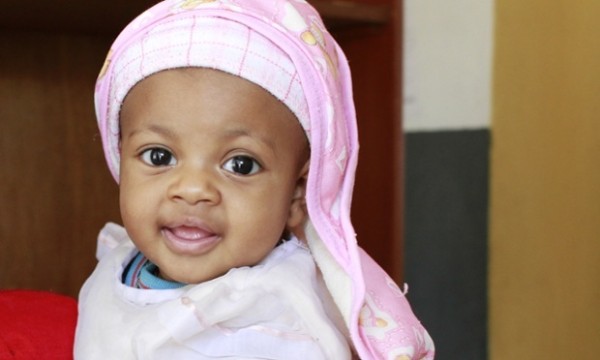PBS: Escaping Eritrea … [Read More...] about ካብ ውሽጢ ቤት ማእሰርታት ኤርትራ
Regular antiretroviral treatment coupled with improved diagnosis is helping to reduce the number of babies being born with HIV in Ethiopia
Abeba sits in the consultation room at Modjo health clinic in central Ethiopia, her seven-month-old daughter, Aster, cooing playfully on her lap.

Abeba is HIV-positive, and has travelled 20 minutes by bus to collect the antiretroviral treatment she needs. She is part of a programme at the clinic to prevent mother-to-child transmission, which involves a regimen of medications for mothers and babies during pregnancy and breastfeeding.
Tests so far indicate that Aster has not contracted HIV, much to her mother’s relief. “Now I know my daughter doesn’t have it while I have it, I’m very happy,” says Abeba, who does not want her real name used. “It changes everything for me.”
Despite global efforts to achieve an AIDS-free generation, in Ethipia only 24% of pregnant women who are eligible for HIV services receive them. One out of three children born to an HIV-positive mother is infected with the virus.
Abeba has three other children at home, all sons, who are also HIV-negative. She says she feels blessed that her second youngest son did not contract the virus, since she did not receive treatment while pregnant with him. “I found out I had this four years ago, but I think my son, who is five years old, was born when I was positive but without me knowing,” she says.
The eldest of Abeba’s sons is 12, and she says she will wait until he is 18 to tell him she has HIV. “I do not mind talking about it, but I want to protect my children. In the village they talk about it like it’s something very severe and something very bad to have,” she says. “But even though I don’t tell people I have it, I do tell them that we are all human beings and there’s nothing to be afraid of.”
Next to the consultation room where Abeba makes her fortnightly visits, Sisay Dinku offers counselling to HIV-positive women. The 33-year-old learned she had HIV 10 years ago, and has worked at health clinics for the past nine. She says things have changed for people living with HIV in Ethiopia.
“There have been a lot of improvements. When I first knew I was HIV positive, we used to go to the hospitals far away because the services weren’t given at the community centres like they are now,” Sisay says.
She also notes the reduction in waiting times for people receiving their CD4 count results, which indicate how well their immune system is able to fight HIV and other infections. A person’s CD4 count determines when they should commence HIV treatment.
“When I used to get tested I would have to wait one or two weeks for the test to be sent away. Sometimes you didn’t get results at all, because they would get mixed on the way there,” Sisay says.
A new device providing same-day CD4 test results has helped cut waiting times for patients at the clinic. The Pima machines analyse blood samples and print reports for nurses in 20 minutes, meaning patients do not have to return to the clinic to get their results. If the results indicate HIV treatment should commence, patients can do so straight away, making it easier to begin and remain on treatment. The machines were initially funded and rolled out by global health organisation Unitaid, and the Ethiopian government has since opted to expand the programme.
Sisay says improvements in HIV diagnostics have made a significant difference, particularly for monitoring pregnant women. “Let me give you an example,” she says. “When I found out I was HIV positive, there were eight other people that day who found out too, but I’m the only one that’s alive and survived. The rest of them died because they didn’t have the support and they couldn’t wait for weeks for blood samples and have to travel back to the clinic again. They got tense, they got worried, and sometimes they quit from the overall treatment. That’s the result of waiting. And I’m lucky I didn’t quit because I have a six-year-old child.”
For both Sisay and Abeba, having healthy children has been a precious gift. When asked about the future she envisions for her daughter, Abeba says with a smile: “It is God’s will what she becomes when she’s older, but if you ask me, I prefer that she becomes a doctor – we are alive because of the doctors treating us.”
